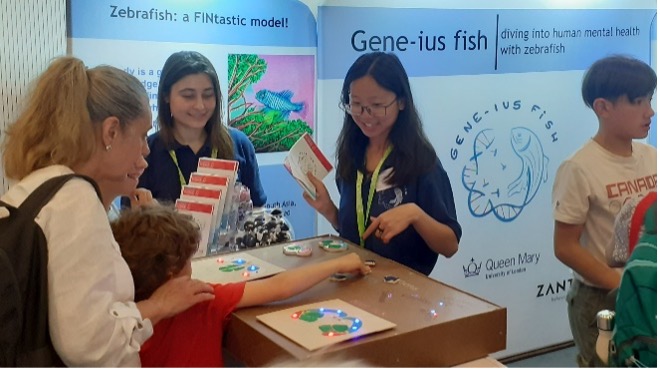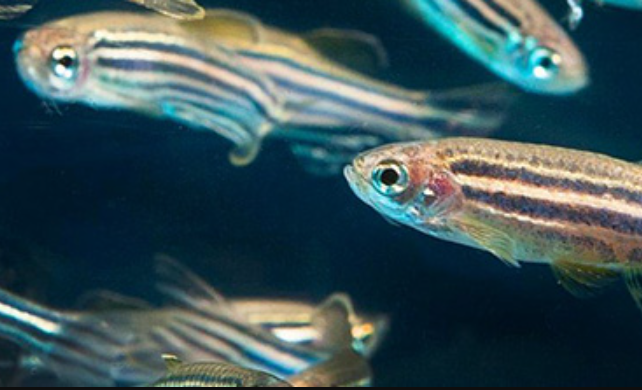Gene-ius Fish
Mental health affects human’s way of thinking, feeling, and acting and represents a worldwide critical concern. Both environmental and genetic factors can impair mental health, increasing the risk of developing mental disorders.
The zebrafish neurobiology and behavioural genetics group at Queen Mary led by Prof Caroline Brennan, aims to identify these genetic factors and possible therapeutic targets. Zebrafish (Danio rerio) is a small freshwater teleost fish widely employed in neurobiological and behavioural studies because of its advantages over other vertebrate models such as small size, rapid development, high reproductive capacity and number of offspring, easy genetic manipulation. 84% of the genes associated with human psychiatric disease have a zebrafish counterpart and zebrafish show conservation of main human neural circuits such as dopaminergic, serotoninergic, and cholinergic systems.
Over the last decade, the number of behavioural assays in zebrafish have increased confirming its translational validity and offering the possibility to exploit the advantages of this model to identify molecular mechanisms involved in behavioural phenotypes associated with psychiatric disorders.
What we are showing at the event: Come and meet our researchers and the zebrafish that are helping to understand and treat genetic drivers of poor mental health.

Public engagement activity

Zebra fish!
Collaborate with us:
Please find out more and become an non-academic affiliate at the Centre for Brain and Behaviour.
Find out more about our Genius Fish Project.
Contact: Prof Caroline Brennan, Dr. Adele Leggieri, Giovanni Tretola, Aranza Espinosa-Flores, Peter Ashdown

